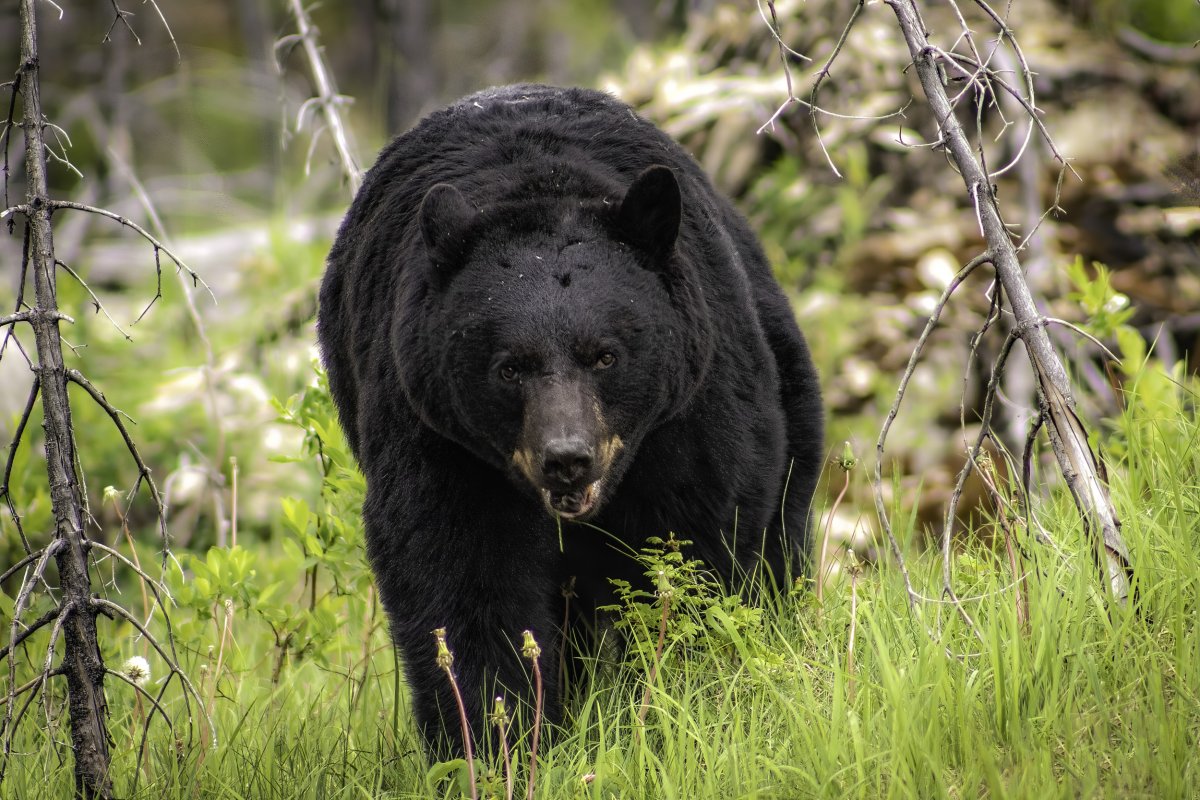A man who shot a bear in Oregon has been attacked by that same animal, hours afterward.
Craig Lankford, the hunter, was attacked on Wednesday in La Grande, at around 7 in the morning. Lankford had initially shot the bear on Tuesday night after it harassed his chickens. He shot the animal a second time on Wednesday morning after encountering it near his property. The bear then attacked him. Lankford suffered injuries to his arms and head and was taken to hospital, but is expected to recover.
The Union County Sheriff's Office, Oregon Department of Fish and Wildlife (ODFW), and Oregon State Police responded to the attack. Officers found the injured bear and euthanized it, according to an ODFW and Union County Sheriff's Office statement. A postmortem on the bear confirmed that the bear shot by authorities was the same one involved in the attack.

The animal involved in the attack is likely a black bear, as there are only a few thousand grizzly bears that live in the contiguous U.S. The ODFW states that there are no grizzlies native to Oregon. Black bears are commonly found throughout the U.S., numbering somewhere between 339,000 and 465,000 across the country, with the state of Oregon alone being home to around 25,000 to 30,000 black bears.
Bears usually feed on berries, nuts, and other vegetation, but are often drawn toward human areas by the smell of human food, animal feed, and garbage.
"As human populations expand and encroach on dwindling wild bear habitats, the interface between human settlements and bear territory is increasing," Heidi Quine, the director for the bear and vet team at Animals Asia, previously told Newsweek.
"This increases the likelihood of bears coming into contact with humans as they search for food," Quine said. "Food left out for dogs or cats and compost piles, including kitchen scraps, can attract bears, who have a sense of smell so sensitive, it's hard for us to measure just how powerful it is."
"We are grateful Mr. Lankford survived this encounter and wish him a smooth and speedy recovery," said ODFW's Jeff Yanke in the statement.
Bears becoming used to entering human areas for food can lead to them becoming habituated to our presence and losing their fear. It increases the likelihood of them being attacked by humans, or them attacking us. "While, of course, dangerous for humans, human-bear conflict is more often fatal for bears," Quine said.
Wounded bears can be especially dangerous: the ODFW states that the department is aware of at least three incidents when wounded bears attacked hunters who had shot but not killed them. Thankfully, the people all survived.
Oregon locals are advised by the ODFW to limit the likelihood of bears approaching their homes in three ways: by keeping pet food indoors; removing fallen fruit from the ground; and securing garbage cans. Those who encounter a bear are urged to make loud noises and seem aggressive to scare the bear away; and not to run away, but rather to back away slowly, facing toward the bear.
Do you have an animal or nature story to share with Newsweek? Do you have a question about bears? Let us know via science@newsweek.com.
Uncommon Knowledge
Newsweek is committed to challenging conventional wisdom and finding connections in the search for common ground.
Newsweek is committed to challenging conventional wisdom and finding connections in the search for common ground.
About the writer
Jess Thomson is a Newsweek Science Reporter based in London UK. Her focus is reporting on science, technology and healthcare. ... Read more
To read how Newsweek uses AI as a newsroom tool, Click here.








